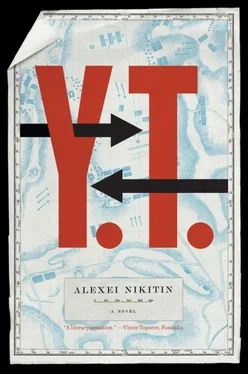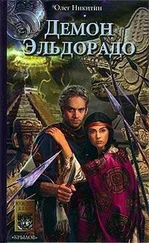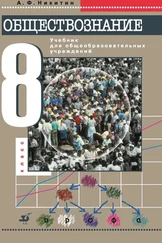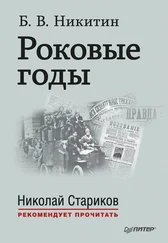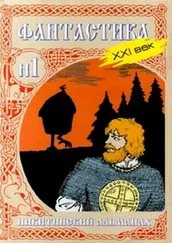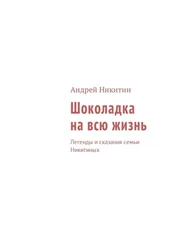‘It’s so economically worded,’ said Kanyuka five minutes later with false admiration. ‘ “For the systematic violation of academic discipline”—you can’t argue with that.’
They were examining the sheet of paper I had taken down from the departmental notice board, turning it over in their hands and passing it along to one another. The sheet, which had been clean and white a moment before, grew creased as it passed from hand to hand. It was deteriorating before our very eyes, and yet it was full of power—even now we could scarcely hold it. We had been expelled.
Natasha was standing by the board and watching us silently. She was watching us, and we were all trying to understand which one. And what she was thinking about. What exactly. She was watching, and Korostishevski and Kanyuka were both trying to look cheerful and carefree. Kurochkin frowned pensively and rested his cheek on his fist. Mishka Reingarten attempted to speak.
‘Well, sure,’ he said to Kanyuka, ‘we’ve been truant for two months. Do we have doctor’s certificates? No. That means we’ve been truant. We’re being expelled for truancy.’
‘We weren’t truant. We were in gaol. Although, now you mention it, perhaps we could get certificates? I hear the KGB issues them.’
‘Volodymyr Street?’ asked Kurochkin with surprise. ‘Certificates? Who told you that?’
‘I’m not sure,’ said Kanyuka in some confusion. ‘I just heard it somewhere.’
‘You should try to remember where,’ advised Kurochkin warmly.
‘That’s enough,’ said Sashka Korostishevski softly, and they fell silent. We could see it all. We were being expelled, but at least it was only for truancy. They didn’t want to make a big deal of it—call meetings, expel us from the Komsomol. They could if they wanted to. But they were expelling us gently—and that was well and good. It left us the possibility of studying elsewhere. It could have been worse.
Kurochkin’s secretary caused a commotion in the office and just about disrupted an Important Meeting. When he couldn’t get hold of me on my mobile (we’re under orders to keep our mobiles switched off when we discuss that holiest of holies—‘milk yields,’ better known as ‘revenue’), he started dialing the bosses. ‘Davidov is in a meeting,’ said our patient office managers to Kurochkin’s persistent secretary. ‘You can leave a message if you want to.’
‘I’m calling from Parliament—the Finance and Banking Committee. Davidov is being summoned as a matter of urgency to a meeting of the committee.’ ‘Summoned as a matter of urgency’ did the trick. Maybe our office is American, but the managers are local. They know better than to deal with the authorities if at all possible and immediately passed responsibility to the brass. They told Malkin.
Stephen Malkin was top dog at our branch. He had returned the night before from Memphis, Tennessee, where there had been a great pow-wow of regional managers at our fizzy giant’s head office. The head honchos were explaining the party line on per capita ‘milk yields.’ As far as I could see, nothing had changed—it was still all about profit. But it was necessary to expound on the topic at least once a quarter in case we forgot. Malkin had brought back a box of DVDs of the Memphis meeting and gave one to each of us. Now he was doing his best to convey the chief’s exhortations to consider night and day whether we were doing everything we could for the good of the company. Malkin talked, and we took notes—or, in truth, pretended to, and it was inhumanly boring at that.
Every time I attended one of these meetings I recalled with a shudder of nostalgia my army political indoctrination of eighteen years before. Twice a week we were assembled by battery commander Major Razin, who dictated at length from a Partyapproved training manual. The battery commander was short in stature, with two dozen iron teeth gleaming darkly from his mouth. He himself was a die-hard Stalinist. Whenever he came across the leader’s name within the approved text he grew inordinately excited and forgot all about the training manual and the political classes. ‘We couldn’t have done it without Joseph,’ he cried exultantly. ‘Wherever you look—there he is. We’d have got nowhere without him. That’s because he was the head—he and he alone thought for everyone else, for the entire country. Not long ago our pay went up. That’s good, isn’t it? Don’t you think they did the right thing? Well, what do you suppose Joseph did? He lowered the prices. One’s as long as the other is broad, eh? But if you look closely… when they raise wages, we pay more taxes. But what about prices? Eh? Eh? That’s right. Because he was looking after the people.’ We loved these monologues—they revealed the weakness of a strong man, and we thought of the battery commander as a strong man. Then we just took it easy. There was no need to take notes on these monologues. And Stalin was the last thing on our minds.
Malkin was nothing like Razin. He looked like a hamburger: plump buns, spirit of democracy, big smile on display. In his callow American youth Malkin had studied at the same college as William F. Hume, president of the board of directors of our little shop, so whenever when he came across the name Hume in those management documents that showered on us like incessant rain from Memphis, Tennessee, Malkin would get as excited as Major Razin. He would completely forget about the documents and volubly hold forth about that down-to-earth American guy, Bill As He Remembered Him. We didn’t hold it against Malkin. Without this chatter Important Meetings would have been a lot harder to bear. I don’t know what the others were thinking while they listened to Malkin, but I had long since stopped listening altogether. I would look at Malkin and wait—for the moment his synthetic smile gave way to a Razinesque iron grin and those immortal words would resound: ‘That’s because he was the head—he and he alone thought for everyone else.’
On this occasion Malkin was shot down before he gained altitude. His eyes had not yet misted over, his voice had yet to quiver in pride and excitation. He had only managed a solemn recitation of the signature on a management directive when one of the office managers slunk into the room like a silent shade trying not to detach itself from the wall. Malkin twitched, smiled broadly and—burying his irritation deep inside—eyed the manager, who redoubled his pace to cross the room and bend over the chief’s ear. Malkin heard the fellow out. For a moment his brows vaulted indignantly then smoothed out again, and Malkin assumed a stock smile. He gave a curt nod and a rapid reply. I was allowed to go.
A minute later I was talking to Kurochkin on the telephone, and within fifteen minutes I was turning off Three Saints Boulevard on to Kostel Street where he lived. Rush hour was starting, and the city centre was packed with cars, but I was able to avoid the worst of it by taking quiet back streets. If I’d gone by Volodymyr Street or Kreschatik Boulevard it would have taken me until evening.
Kurochkin was standing in the doorway to his living room. ‘Comprador,’ I said, ‘what have you brought this country to? There are so many cars in the city you can hardly shove your way through them. If people keep growing poor at this rate, we’ll need double-decker roads.’
‘And a car park instead of the Monastery of the Caves.’
‘There’s not much room there.’
‘We’ll expand it, make it deeper. Install air conditioning, plumbing and electricity.’
‘Nothing is sacred to you, is it, Kurochkin?’ I sighed with disappointment.
‘Nothing,’ said Kurochkin. ‘It’s my habit to drink the blood of Christian babies in the morning instead of juice, and I like to nibble on the relics of the monastery’s saints.’
Читать дальше
